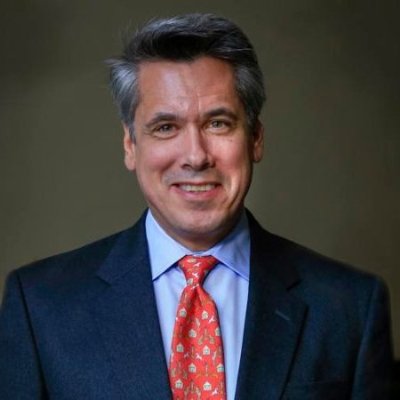The CFTC’s approach to the registration and regulation of swaps clearinghouses has become a critical global regulatory issue. Yet there has been little attention paid to an emerging CFTC regulatory program to exempt swaps clearinghouses from CFTC registration. In this article, we explore this emerging exemptive program and discuss the significant implications that it will have for clearinghouses and swap market participants throughout the world.
Background
The CFTC takes the position that any clearinghouse that clears a swap for a US person-either directly for a US clearing member or indirectly for a US customer of any clearing member-must register with the CFTC as a derivatives clearing organization (“DCO”) or obtain an exemption from DCO registration. Due to the CFTC’s expansive US person definition, the requirement applies to non-US clearinghouses that clear for certain entities that operate outside of the United States, such as foreign branches of US banks.
The Dodd-Frank Act allows the CFTC to exempt a non-US swaps clearinghouse from DCO registration, but only if the CFTC determines that the clearinghouse is subject to “comparable, comprehensive supervision and regulation” by authorities in the clearinghouse’s home country or the SEC. However, the CFTC has not yet exempted any swaps clearinghouses, nor has it publicly announced a formal exemptive program. Indeed, the CFTC’s plans concerning its potential use of this important exemptive authority have been evolving over the past year-and may not be widely known.

Evolving CFTC Plans
At public events during the first half of 2014, then-acting Chairman Wetjen and senior members of the CFTC staff (the “Staff”) stated that the CFTC planned to develop an exempt DCO program through a formal rulemaking and that the Staff had a “fairly well-developed” draft rule proposal on hand. At a May 21, 2014 public meeting, for example, the Staff discussed the core elements of a draft proposal for an exempt DCO rule. During this same period, the Staff also issued temporary no-action relief from DCO registration to four non-US swaps clearinghouses that had not applied for DCO registration, but had expressed an interest in obtaining an exemption. Each clearinghouse asserted that its home country authorities apply regulatory standards that are consistent with the Principles for financial market infrastructures developed by CPSS-IOSCO (the “PFMIs”).
The CFTC has yet to propose an exempt DCO rule. Press reports indicate that the approach that the Staff discussed at the public meeting in May drew negative comments from regulators in Europe, who questioned whether the Staff’s approach-which would have prohibited exempt DCOs from clearing for US customers-would provide an “effective equivalent system” for the recognition of non-US clearinghouses. As described below, this is a critical issue that impacts the recognition of US clearinghouses in Europe and has reportedly been a key consideration in ongoing discussions between CFTC and European Commission (“EC”) officials concerning cross-border clearinghouse recognition.
It now appears that the CFTC staff is developing an exemptive program without a formal rulemaking. The Staff recently sent a letter to each of the four previously mentioned non-US clearinghouses that describes the CFTC’s exemptive approach, including application procedures, eligibility criteria and the requirements and limitations of exempt DCO status. The existence (but not the content) of this important Staff guidance became known to the public through references in no-action extension letters for the four clearinghouses that the Staff published in December. Subsequently, the CFTC released a copy of one of the Staff’s private guidance letters (the “Staff’s Letter”) in response to a request under the Freedom of Information Act.

The CFTC’s Currently Planned Exemptive Approach
The Staff’s Letter provides that for a non-US clearinghouse to be eligible for an exemption, the clearinghouse’s home country regulator must apply regulatory standards to clearinghouses that are consistent with the PFMIs. The clearinghouse must also observe the PFMIs in all material respects and be in good regulatory standing in its home country. In addition, there must be a memorandum of understanding or similar arrangement in effect between the CFTC and the authorities in the clearinghouse’s home country pursuant to which the non-US authorities agree to provide the CFTC with any information that the CFTC deems necessary to evaluate the clearinghouse’s exemptive status.
Additionally, the Staff’s Letter describes the information that must be submitted to the CFTC as part of a petition for an exemption. The Staff’s Letter notes also that exempt DCOs would be subject to certain restrictions and several ongoing CFTC regulatory requirements. In addition to not being able to clear for US customers or the customers of any futures commission merchant, an exempt DCO would need to, among other things:
– satisfy a panoply of daily, quarterly, event-specific and ad hoc reporting requirements concerning, among other things, its operations and home country regulatory scheme and status thereunder;
– report certain swap data to a CFTC-registered swap data repository;
– have a rule that provides that swaps with the same terms and conditions submitted for clearing are economically equivalent within the clearinghouse and may be offset with each other within the clearinghouse;
– “consent to jurisdiction in the United States” and designate an agent in the United States; and
– make its books and records open to inspection by the CFTC.
Key Implications
The marketplace has eagerly awaited a DCO exemptive program. While several non-US clearinghouses have registered or are registering with the CFTC, others have delayed or intend to forgo CFTC registration in anticipation of the development of an exemptive pathway. Further, the establishment of an exemptive program for non-US clearinghouses-and the characteristics of any such program-will also greatly impact US clearinghouses, since the recognition of US clearinghouses by the European Securities and Markets Authority (“ESMA”) under the European Market Infrastructure Regulation depends upon, among other things, whether the EC considers the United States to provide an “effective equivalent” system for the recognition of non-US clearinghouses.
Moreover, if ESMA does not recognize US clearinghouses, then EU banks’ ability to clear through US clearinghouses will be jeopardized, since the clearinghouses would not be “Qualified CCPs” for EU bank capital purposes, resulting in higher capital charges for clearinghouse participants. Also, European swap market participants would not be able to satisfy European clearing mandates, once they become effective, by clearing through US clearinghouses. And at the same time, many US swap market participants have eagerly awaited the development of an exemptive program for non-US clearinghouses because it would increase the number of venues through which they could potentially clear their swaps.
Some Concerns
While the CFTC’s development of a DCO exemptive program is welcome by many, certain aspects of the CFTC’s approach raise concerns. For instance, the exemptive program described in the Staff’s Letter resembles a “DCO light” registration scheme, whereby exempt DCOs would be subject to a multitude of ongoing CFTC compliance requirements. This stands in contrast to Europe’s approach to the recognition of non-EU clearinghouses. European authorities defer to the regulatory oversight and supervision of the home country authorities of a recognized non-EU clearinghouse. In addition, the CFTC’s decision to not publish the Staff guidance describing the exemptive program, and to issue such guidance only to those clearinghouses that previously contacted the CFTC, is quite unusual. Other clearinghouses, their stakeholders and the market generally would benefit from the knowledge of all available regulatory programs and options.
Conclusion
While the establishment of a DCO exemptive program could have a positive impact on clearinghouses and swap market participants around the globe, it remains to be seen whether further changes will be made to the exemptive program described in the Staff’s Letter. It is also unclear how the Staff’s approach will fit into the broader context of CFTC-EU negotiations concerning cross-border issues. We await more developments in this area in the next several months.
Annette Nazareth is a partner and Jeffrey Dinwoodie is an associate in Davis Polk & Wardwell’s Financial Institutions Group.
The views represented in this commentary are those of its author and do not reflect the opinion of Traders Magazine or its staff. Traders Magazine welcomes reader feedback on this column and on all issues relevant to the institutional trading community. Please send your comments to Traderseditorial@sourcemedia.com



